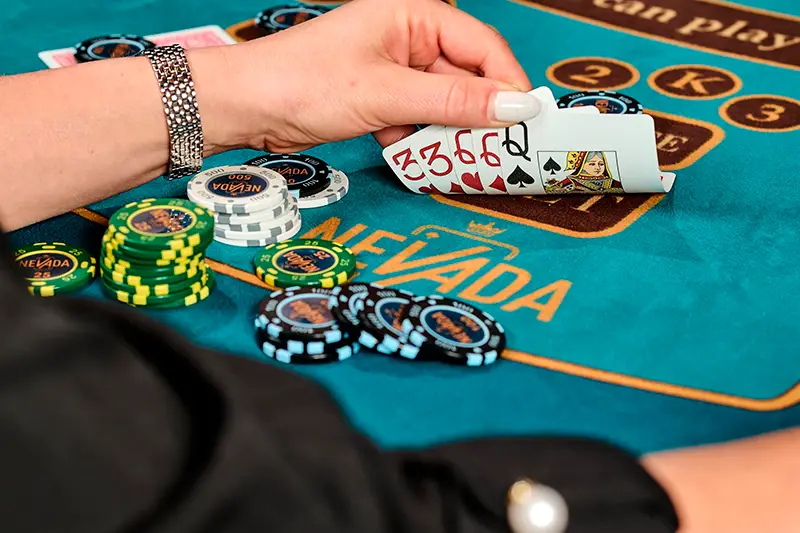Choosing an online poker room is an investment in your gaming experience. A wrong decision can result not only in financial losses, but also in disappointment from unfair play and withdrawal problems. To avoid such troubles, it is necessary to carefully study the selection criteria, understand the subtleties and identify potential risks.
In this article we will tell you in detail how to choose a poker room and enjoy online play.
The main criteria for choosing a poker room
The licence is the first indicator of a poker room’s reliability. Major gambling commissions Malta Gaming Authority (MGA), UK Gambling Commission (UKGC) and Curaçao Gambling Commission (CGC) – ensure compliance with fair play standards, protection of user data and timely payments. You can check the licence on the official website of the poker room: information about the regulator and the authorisation number is usually placed at the bottom of the page.

Security is important: data encryption, two-factor authentication and timely technical support help protect your account from fraudsters. Good poker rooms use SSL protocols and offer secure payment methods including bank cards, e-wallets and cryptocurrency.
Reviews: an objective picture or a marketing trap
When choosing a poker room, it’s important to study player reviews. Real opinions can be found on specialised forums (TwoPlusTwo, GipsyTeam), as well as on independent sites with ratings. It is important to analyse not only positive, but also negative comments Delayed payouts, support problems or suspicions of unfair play should alert you.
Fake reviews are easy to recognise: they are too enthusiastic, without specific details or contain the same phrases. Honest comments include facts, references to real cases and specific amounts of winnings or problematic payouts.
Poker Room Bonuses
 Almost every poker room offers bonuses to attract new players. Popular offers include deposit bonuses, rakeback programmes and promo codes for free tournaments. However, attractive numbers can hide complicated wagering requirements: some rooms require you to wager the bonus multiple times before the funds are available for withdrawal.
Almost every poker room offers bonuses to attract new players. Popular offers include deposit bonuses, rakeback programmes and promo codes for free tournaments. However, attractive numbers can hide complicated wagering requirements: some rooms require you to wager the bonus multiple times before the funds are available for withdrawal.

The most favourable bonuses usually come with transparent terms and conditions: low wagering requirements, long validity period and real money instead of tournament tickets. Before registering, you should carefully study the terms and conditions and make sure they match your playing style.
Freerolls: a chance to make money without investing
Freerolls are free poker tournaments that allow participants to earn real money without making a deposit. They are a good place for beginners to start, allowing them to learn the game and try their hand without the threat of losing their own money. Depending on the poker room, freerolls can offer small prize pools or large payouts, especially if a player gains access to exclusive tournaments through promotions or affiliate programmes.
The frequency and size of prize pools vary, with some rooms offering daily freerolls with minimal payouts, while others offer weekly freerolls with larger payouts. To maximise your winnings, you should choose sites that run freerolls regularly and offer additional tickets or bonuses to active players. Experienced players recommend participating in such tournaments to build your skills, study your opponents’ strategy and gradually build up your bankroll without excessive investments.
Poker rooms: what to look for when choosing the best poker room
There are a number of criteria when choosing a poker room. Among the key parameters are:
- High player traffic – the more active users, the faster tables and tournaments are assembled. High activity reduces the likelihood of playing against bots and makes it easier to find suitable opponents.
- Variety of formats – a good poker room offers not only standard cash games and tournaments, but also fast formats, spins and satellites for major events.
- Rake and rakeback policy – low rake and favourable rebate programmes increase the profitability of the game.
Based on these criteria, we can highlight the best poker rooms:
- PokerStars is one of the oldest and most reputable. It is characterised by the widest selection of tournaments, high traffic and large guaranteed prize pools. Satellites to the world’s biggest series are available, as well as exclusive events with record-breaking prizes.
- GG Poker is an innovative poker room with an emphasis on friendly interface, favourable bonuses and interesting game formats. It is known for its active work with professional players and offers some of the best rakeback programmes on the market.
- PartyPoker is the optimal choice for cash game enthusiasts. Favourable conditions for cash players, regular promotions, an abundance of recreational players and a loyal policy towards novice poker players make it a great option for stable earnings.
How to choose an online poker room: bottom line
 Remember that choosing a poker room is a responsible step that affects the safety, comfort and quality of the game. A reliable site should offer fair conditions, transparent payouts and user-friendly interface, as well as provide security.
Remember that choosing a poker room is a responsible step that affects the safety, comfort and quality of the game. A reliable site should offer fair conditions, transparent payouts and user-friendly interface, as well as provide security.
The most important thing you need to do is:
- Check the licence – make sure you have an official permit registered in reliable jurisdictions.
- Evaluate security – examine the level of account protection, data encryption methods and payment processing speed.
- Analyse the bonus policy – make sure that the wagering conditions are transparent and in line with the gaming style.
- Read player reviews – find independent comments on forums, compare opinions of real users.
- Study traffic – check the number of active users, the level of competition and available game limits.
 en
en  de
de  ar
ar  es
es  hi
hi  fr
fr  nl
nl  it
it  pt
pt  el
el 









